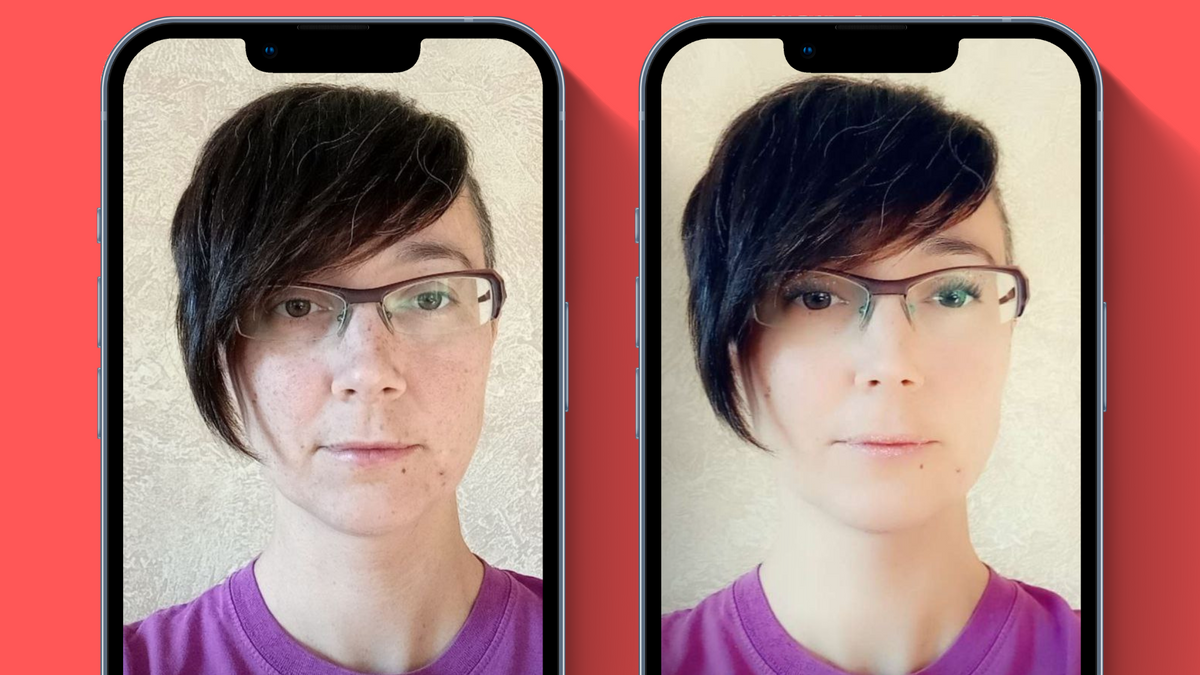Women with a Filter
Even without filters, our faces appear distorted in online pictures.

Filters, filters on Instagram, which one will make me the fairest of all?
If Snow White's stepmother had Instagram instead of a magic mirror, I bet this is what she would say to her filter app. After all, there are so many ways to become beautiful on screen that the wall mirror has become increasingly obsolete. The stepmother could choose a filter that would give her skin a youthful glow, change her hair color to make it ebony black, and add a blood red color to her lips.
As much as countless brands of cosmetics beautify our daily lives, nothing beats the magic ability of filters to achieve the "perfect look".
I, who always wanted to have light eyes, suddenly found myself on Instagram with the most beautiful translucent brown eyes that matched the copper tone of my hair. I looked like a doll 10 years younger.
Amazed by this new Instagram tool, I decided to do more research on the subject, and here is what I found:
The idea of filters was introduced by Kevin Systrom, a young man from San Diego, who graduated from Stanford, and was passionate about programming from a very young age. Co-founder and CEO of Instagram, Systrom came up with the idea after his girlfriend became dissatisfied with the quality of photos she took with her iPhone 4. For this reason, she was reluctant to post them on social media. Thus, the creation of Instagram filters was developed primarily so that all pictures could look better.
While filters can change our selfies’ color, face and body transforming apps change the structures, creating “the best version of ourselves." By using one of the tens of popular face and body modification apps, we can apply lip fillers, slim our face and waist, change hair, become younger or older, etc.
Over time, some women have become so used to seeing the world through the filter that they’re unable to function in the real world. That's what happened to 19-year-old Maisie Hazelwood who, after eight years of applying “beautifying” effects to her photos, started to hate seeing her unfiltered reflection. As a result, Hazelwood ended up having trouble getting out of bed because of low self-esteem.
Instagram face
When using appearance-transforming apps, many women end up creating a far-from-unique version of themselves. According to Jia Tolentino, they tend towards transforming into a cyborg-resembling "Instagram Face" - with young, poreless skin and full, high cheekbones, as well as cat eyes and long, cartoonish eyelashes; there is a small, neat nose and full, lush lips. The person looks at you shyly but expressionlessly. Thus, our faces become standardized online.
Although, in terms of money, it costs nothing to digitally alter our faces, we may be paying in different ways- by an increase in dysmorphia.- especially among millennial consumers (those who were born between 1981 and 1996). According to research, filtering apps that allow you to change your appearance have generated high dissatisfaction in their users, culminating in disorders such as depression and “Snapchat dysmorphia” or “selfie dysmorphia.”
According to scientists, social media influences individual decisions to undergo esthetic procedures, and patients frequently bring in filtered selfies to demonstrate their desired appearance. Esthetic practitioners need to recognize the filtered selfie trend when evaluating patients. Practitioners should screen patients for warning signs and unrealistic expectations if presented with a highly filtered photograph. Medical practitioners have professional and bioethical obligations to hold the safety of patients above all else, points out the article.
Snapchat Dysmorphia is a type of Body Dysmorphic Disorder in which the person identifies defects or flaws in their appearance while looking at the digital representation of their face. Those suffering from BDD are preoccupied with at least one nonexistent or slight defect in physical appearance. This can lead them to think about the defect for at least one hour a day and show signs of repetitive or compulsive behavior connected to their appearance.
“"..front-facing cameras can warp features like an amusement park distorting mirror."”
In reality, people’s faces look vastly different in a mirror than on a smartphone or webcam. "Most people aren't aware that front-facing cameras can warp features like an amusement park distorting mirror, " a Harvard Medical School dermatologist claims. As a result, more than 50% of aesthetic experts reported an increase in cosmetic appointments amid the Covid-19 health crisis, due to working through Zoom video conferences.
When asked what they would like to change, most patients reported dissatisfaction with sagging cheekbones, sagging necks, unexpected jowls, and disproportionate noses. Pérez Sevilla, who is also a specialist in aesthetic-facial medicine, warns that video calls over the phone are major image distorters:
“We lower our chin to look at ourselves in the cell phone camera and then the double chin and neck bands appear that we don't see in the mirror, which we look at with the chin higher.”
While watching ourselves in video conferences may make us think we look worse than we really do, social media filters seemingly offer a way out. But, while modifying our digital pictures, we fall in love with the camera.
It's time for us to have the right to our real face, and the key to that is to rescue our self-esteem.
With that in mind, a UK-based model and makeup artist Sasha Louise Pallari started a campaign for "real skins" on Instagram in 2020. According to her, scars, birthmarks, and the very texture of the skin tell a story, and should not be erased. Pallari also points out that we only compare ourselves to others because we don't feel worthy enough, and that confidence is like a muscle: "the more you use it, the stronger you get".
In conclusion, our face is unique and should not be standardized by filters or knives. It shapes our identity, allowing dialogue with the people around us.
The generous support of our readers allows 4W to pay our all-female staff and over 50 writers across the globe for original articles and reporting you can’t find anywhere else. Like our work? Become a monthly donor!
Enter your email below to sign in or become a 4W member and join the conversation.
(Already did this? Try refreshing the page!)





Comments